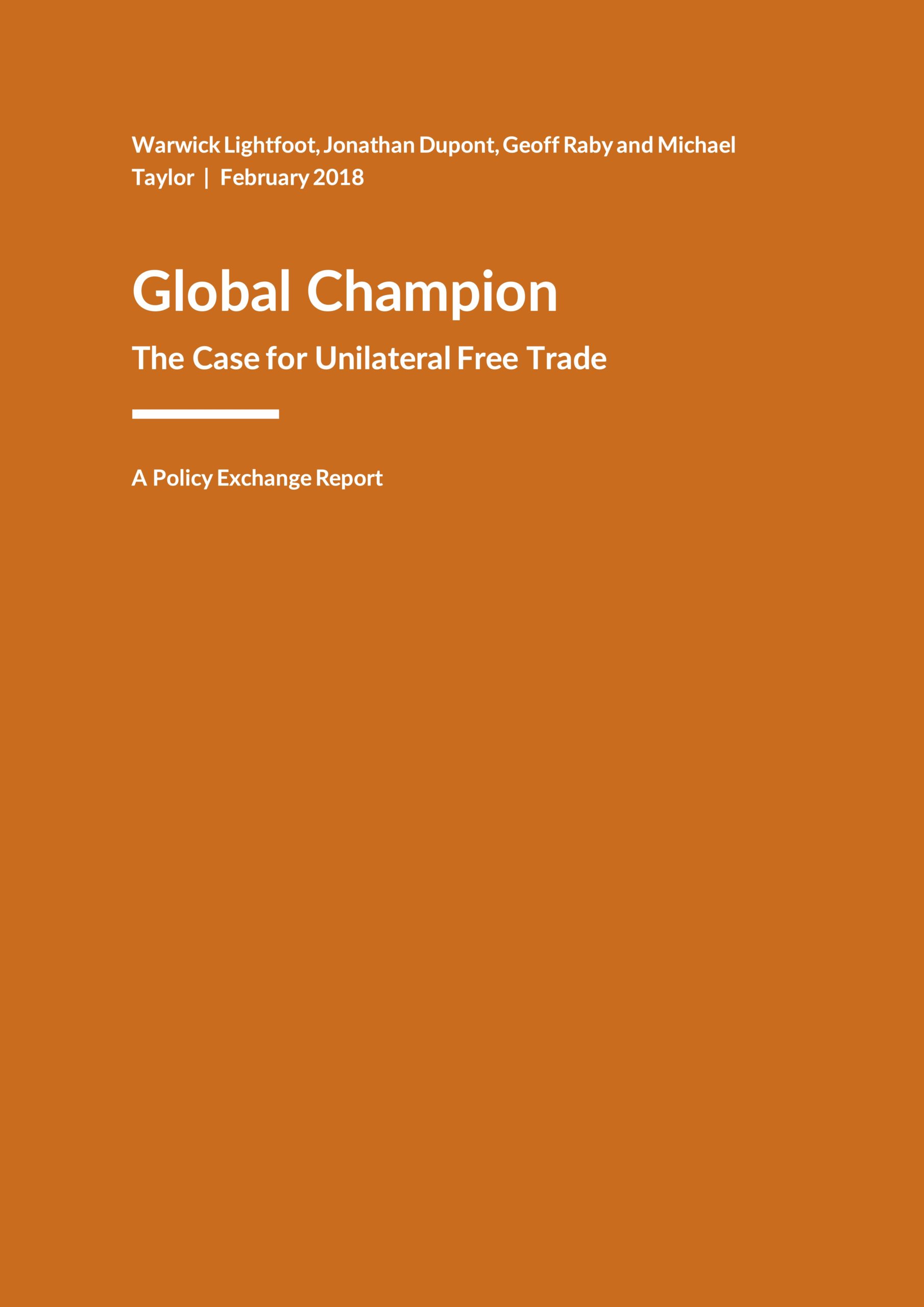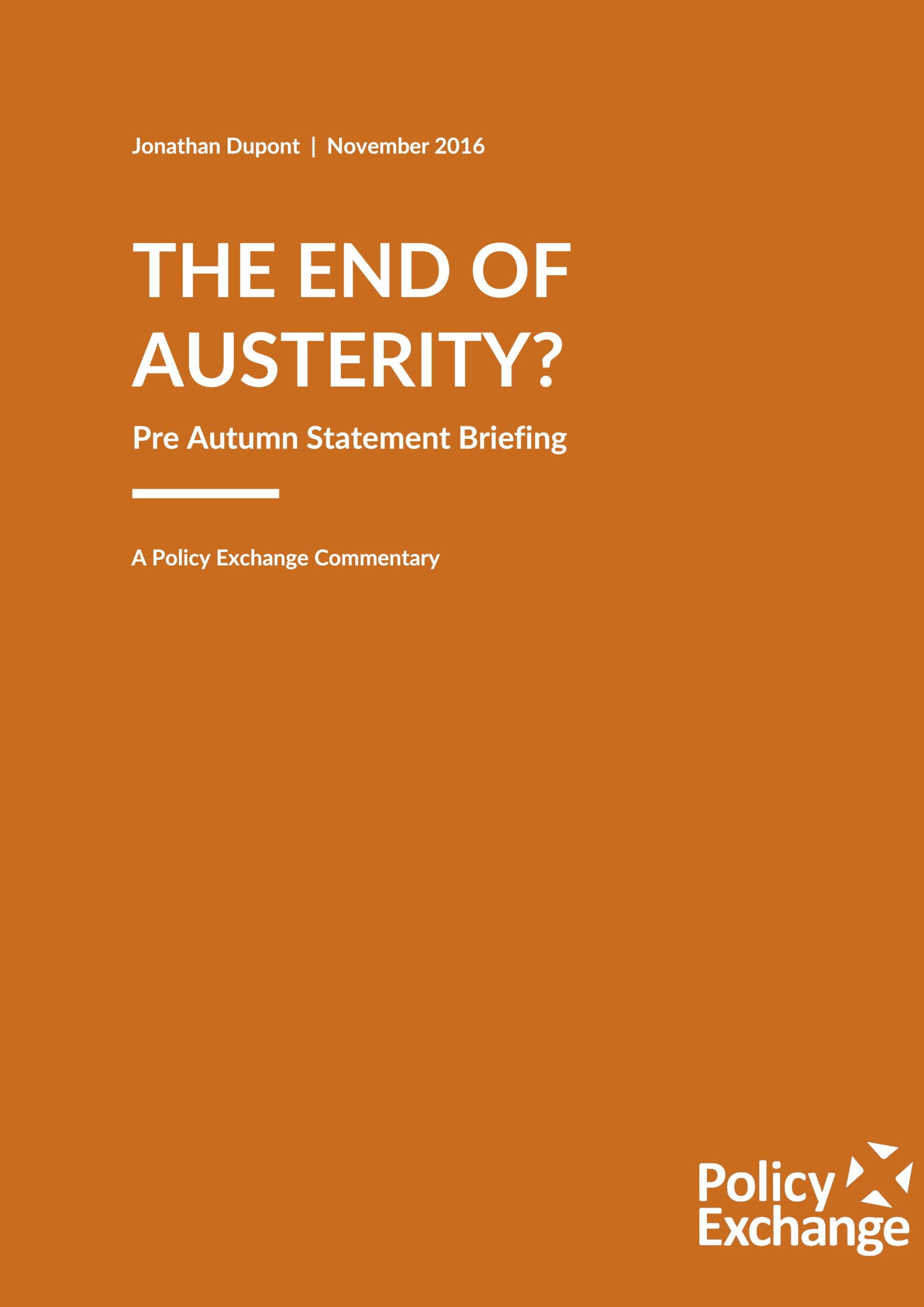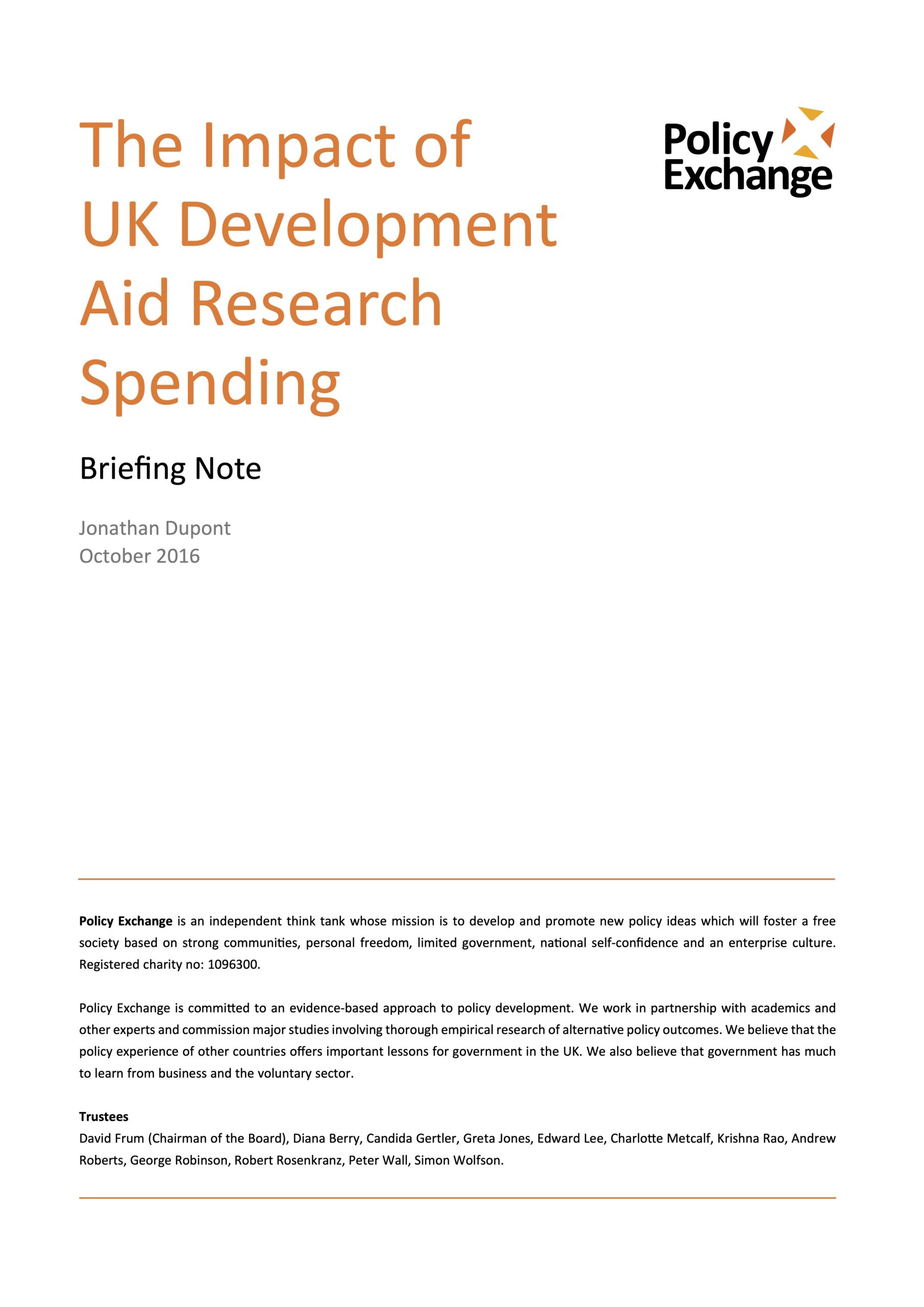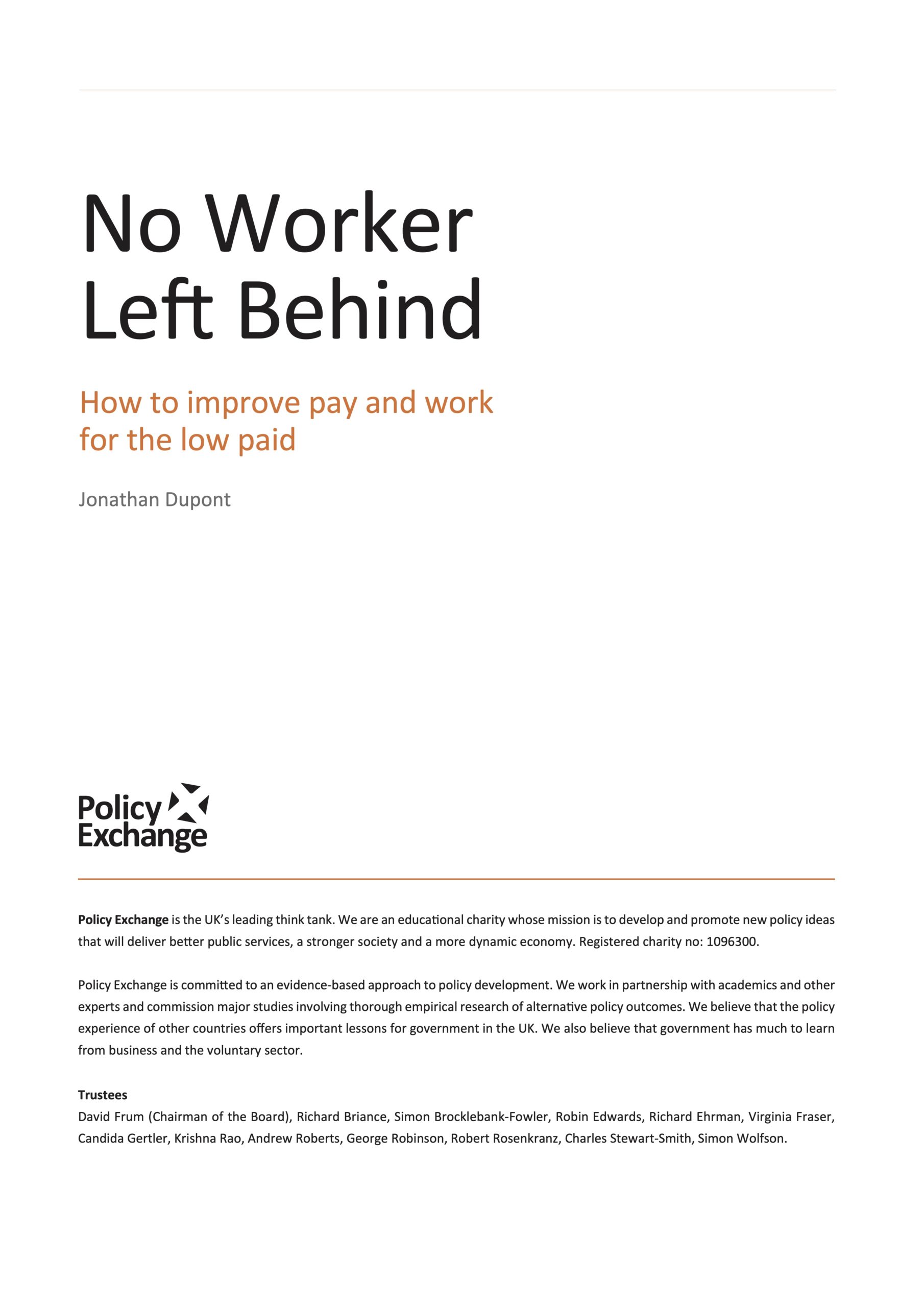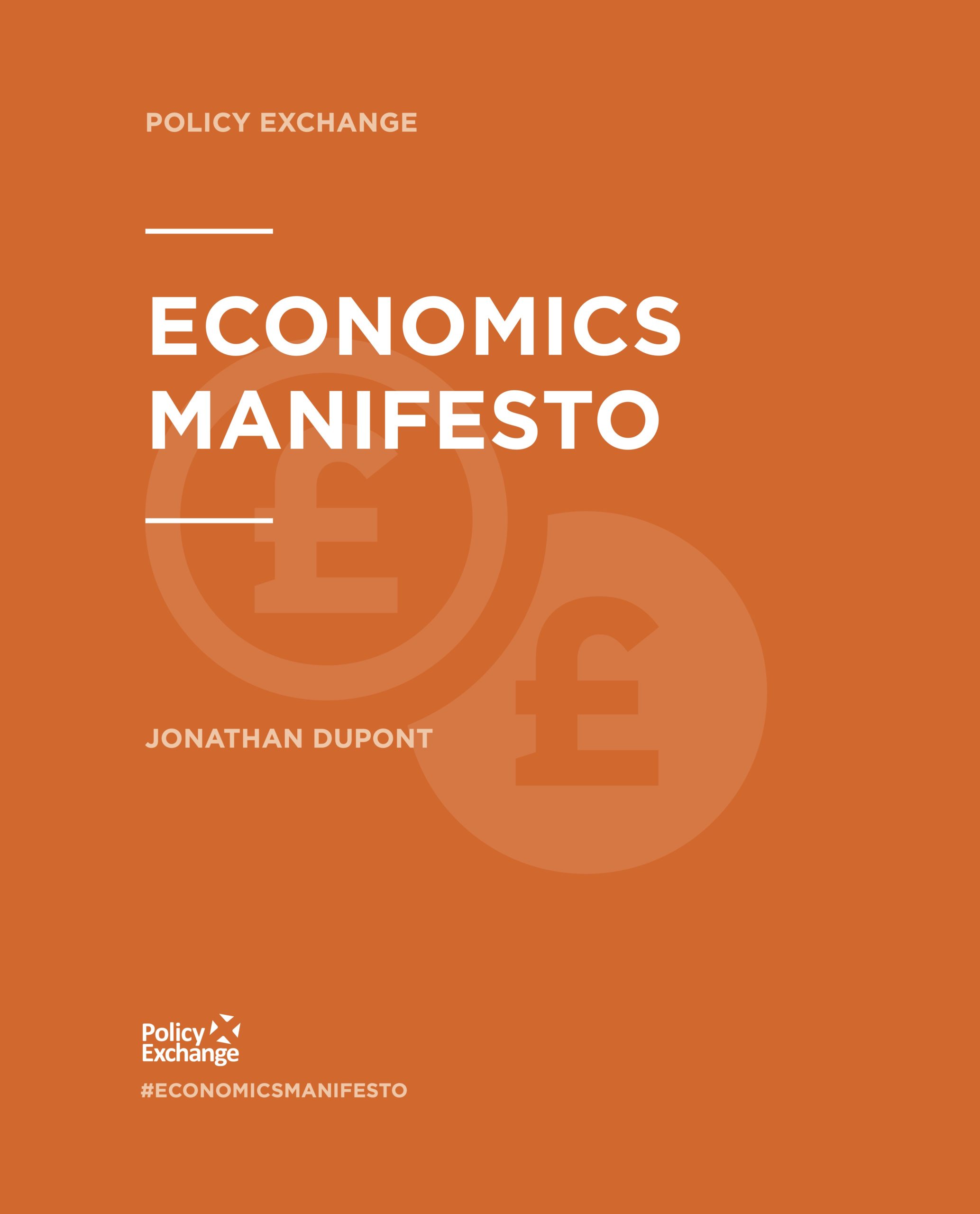Jonathan Dupont
Economic & Social Policy Research Fellow
Jonathan Dupont joined Policy Exchange in April 2014 as a Research Fellow in the Economics & Social Policy Unit. Prior to joining, he worked as a parliamentary researcher, an independent economic researcher and an analyst for the There is Nothing British about the BNP campaign. He has co-written multiple books on public policy, including A Time for Choosing for Palgrave Macmillan and Gridlock Nation for Biteback Publishing.
What can places across the Midlands do to improve local rates of productivity and prosperity?
The UK should become a global hub for ‘GovTech’, with digital technology offering the chance to transform the relationship between the state and the citizen, and create a more efficient, responsive and innovative state, says a new Policy Exchange report The Smart State.
In a major new study, Policy Exchange argues that as the UK leaves the EU, it should unilaterally abolish all tariffs. This would reduce UK consumers' shopping bills, increase productivity and promote global prosperity. We can also disarm the threat of a ‘No Deal’ Brexit. In the Foreword, Australian High Commissioner to London Alexander Downer said: “Trade is not a zero-sum equation. In the decades ahead all major economies should remove their tariffs and open their markets to competition. As the UK once again takes its place at the WTO it should take the opportunity lead by example and remove its tariffs.”
This new Policy Exchange report, published today — written by Economic and Social Policy Research Fellow, Jonathan Dupont — recommends that the UK should double the proportion of its international aid budget spent on research and development, in order to solve the most pressing global challenges and support the Government’s Industrial Strategy. George Freeman MP, Chair of the Conservative Policy Forum, has written a Foreword for the report.
This major new Policy Exchange report sets out the once in a generation opportunity that Brexit offers our nation to reform its agricultural and environmental policy. Since 1973, UK farm and food policies have conformed to the rules and objectives of the Common Agricultural Policy (CAP) — the EU’s principal policy programme. Doing so has, at great expense, reduced Britain’s agricultural productivity by lessening competition and supporting inefficient farmers. It has also increased costs for consumers. This report outlines opportunities to improve policy by focusing on four main interest groups: consumers, producers, the wider rural economy, and the environment. This report offers timely and comprehensive analysis and answers to some of the most pressing policy questions of our day.
Policy Exchange today publishes ‘Global Britain, Global Challenges: How to make aid more effective’. The report makes a strong case for the importance of overseas aid and supports the Government’s commitment to spending 0.7 per cent of national income on aid. The report has a foreword by Scottish Conservative leader Rt Hon Ruth Davidson, MSP; she wrote for The Times today about why "Looking forward, a global Britain should both maintain its world-leading aid budget and be a champion for free trade".
This scoping paper — written by Policy Exchange Economic and Social Policy Research Fellow, Jonathan Dupont, and Head of Environment and Energy, Richard Howard — looks at the big questions surrounding a new Industrial Strategy
This new commentary, written by Jonathan Dupont — Policy Exchange Economic and Social Policy Research Fellow — contends that 'given the current stability of the economy, there is no need for dramatic policy interventions, and the Chancellor should be unafraid to deliver a steady-as-it-goes Autumn Statement'
This briefing note gives an overview of the current evidence on the impact of development spending in R&D, with a particular focus on life sciences — the jewel in the crown of the UK economy.
Together, a decade of loose public spending, fiscal stimulus and the aftermath of the financial crisis left Britain with the highest deficit in its post war history at 10.2% of GDP. Even half a decade later, that deficit is only half closed, and remains high internationally. Budgeting for Balance looks at the experience of fiscal consolidation so far, and how to approach the remainder of the task.
No Worker Left Behind calls for every person in full time work to receive a 'Living Income' - enough money after taxes and benefits to provide a socially-acceptable standard of living. We can do so by aligning and raising National Insurance and Income tax thresholds to a level where a person on full time work on the minimum wage would be taken out of tax altogether.
The Economics Manifesto says that the next government should seek to create a capital-owning democracy for all, so that each and every person in the UK can benefit from economic growth. The report proposes mass distribution of RBS and Lloyds’ shares, compulsory savings, the introduction of a Bonus Isa and a new generation of private sector Premium Bonds.
Policy Exchange's Economic & Social Policy Research Fellow, Jonathan Dupont, writes about the debate within the Cabinet about the cap on public sector pay, for The Times' Red Box. He suggests that, while the cap 'should come to an end soon', this 'should be done in a systematic manner, taking into account the many difficult trade-offs involved, and what is affordable'.
Policy Exchange’s Head of Energy and Environment, Richard Howard and Economic & Social Policy Research Fellow, Jonathan Dupont, report on a roundtable Policy Exchange hosted this week with politicians, regulators and leading businesses to look at some of the pressing questions concerning disruptive innovation and regulation.
Writing on CapX, Jonathan Dupont - Policy Exchange Economic & Social Policy Research Fellow - explains why UK foreign aid should complement the market, not replace it.
Ahead of this week's Budget, the recommendations of Policy Exchange Economic and Social Policy Research Fellow, Jonathan Dupont, range from a continued reduction of the structural deficit, to the commissioning of an overall strategic review of the tax system.
With reference to the Government's recent Industrial Strategy green paper, Jonathan Dupont — Policy Exchange's Economic and Social Policy Research Fellow — considers where should Britain should focus its attention in order to drive up productivity.
Jonathan Dupont — Policy Exchange’s Economic and Social Policy Research Fellow — reflects on the long-awaited Government Transformation Strategy. He argues that, while, overall, the strategy sets the ‘right vision’, there is still ‘much further to go’.
Warwick Lightfoot — Policy Exchange’s Director of Research, and Head of Economics and Social Policy — and Jonathan Dupont — Economic and Social Policy Research Fellow — explore five key points that a free trade agreement between the UK and US should be based on, including a potential carbon tax.
The Government has launched the first details of its long-awaited Modern Industrial Strategy with the publication of a Green Paper. It shares much of Policy Exchange's analysis
Richard Howard — Policy Exchange's Head of Energy and Environment — and Jonathan Dupont — Economic and Social Policy Research Fellow — argue that a new industrial strategy is 'about creating a British economy which is innovative and competitive, which benefits everyone'. This piece first appeared on CapX
Jonathan Dupont — Policy Exchange Economic and Social Policy Research Fellow — argues that 'the Autumn Statement should not seek to be one to be remembered'
Jonathan Dupont, Policy Exchange's Economic & Social Policy Research Fellow, discusses whether the Chancellor has done enough to improve the resilience of the British economy?
Jonathan Dupont and Damian Hind, Policy Exchange's Economic & Social Policy Research Fellows, explore the benefits and drawbacks of the Budget in the UK.
Jonathan Dupont, Policy Exchange's Economic and Social Policy Research Fellow, sets out why transparency in government spending is essential in the long run. Such transparency, he argues, gives confidence that government can combine value for money with protecting the quality of public services.
In the second of his series of blogs ahead of the 2015 Spending Review, Policy Exchange Economics & Social Policy Research Fellow Jonathan Dupont looks at just how challenging the Chancellor's task will be.
Jonathan Dupont, Policy Exchange's Economics & Social Policy Research Fellow, examines the cases made for and against George Osborne's fiscal plans.
Policy Exchange takes a more detailed look at the Summer Budget, including: the impact of the Living Wage; the reduced pace of departmental spending cuts; the fundamental shift in welfare policy; what awaits Housing Associations; and the impact of changes to energy levies.
Policy Exchange's Steve Hughes and Jonathan Dupont analyse today's Summer Budget, including a look at how the National Living Wage will work, further detail on the Conservatives' fiscal rules, and the impact on social housing.
In the run up to the Summer Budget, Policy Exchange Economics & Social Policy Research Fellow Jonathan Dupont looks at the key questions the government will have to answer on future spending levels.
Following IFS findings that living standards are finally back to pre-recession levels, Policy Exchange's Economics & Social Policy Research Fellow Jonathan Dupont sets out ten reasons why growth is still the best way to improve living standards.
The first week in the run-up to the 2015 general election has been spent by Labour and the Conservatives flinging tax and spending accusations at one another. Jonathan Dupont, Policy Exchange's Economics & Social Policy Research Fellow, looks at what has been said, and what this reveals about the parties' spending plans.
Ahead of the Autumn Statement, Policy Exchange's Economics Research Fellow Jonathan Dupont asks 5 key questions on the state of the economy: how much will the worldwide slowdown affect the UK; how much lower can unemployment go; when will pay and productivity pick up; how big is the hole in the public finances; and what are the parties going to do to close the gap?
Jonathan Dupont, Policy Exchange's Economic & Social Policy Research Fellow, examines a new OBR dataset collating the costings for every significant tax change since 1970 and spending changes from 2010. Jonathan draws five conclusions from the data, including: bribing the electorate is going out of fashion, raising taxes after an election isn't inevitable and that only George Osborne's first budget and the 2011 Autumn Statement have had any real impact on the deficit.



